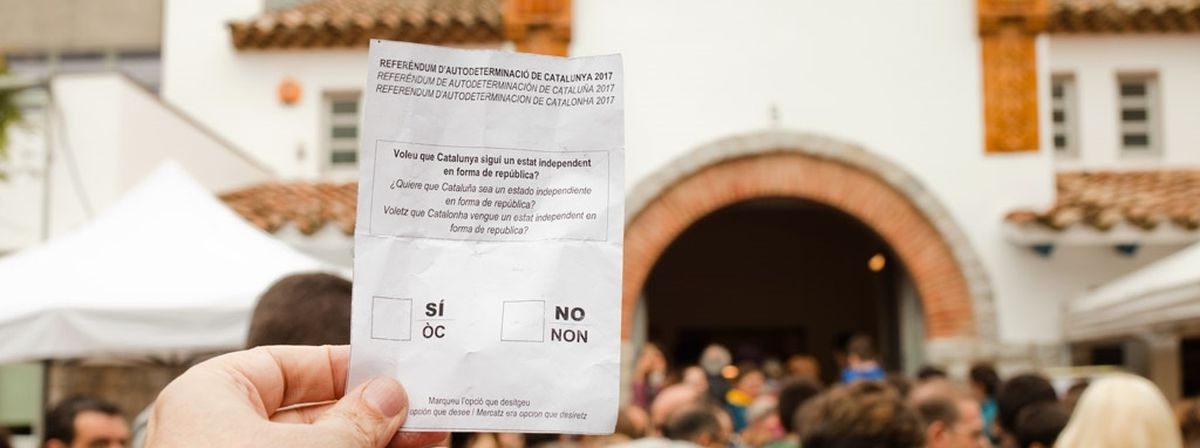
A half-serious history of forgotten referenda
Published on
People always complain that their governments don’t consult them enough. Maybe it’s for a good reason?
The Catalan referendum reminded us that people expressing their opinion in a European democracy can end up tragically. By commanding the armed forces to intervene on Sunday 1 October, Spanish Prime minister Rajoy made the Catalan independence vote History book material.
But some referenda will never make it there. Because contrary to the sky, direct democracy has its limits.
Vodka on Ice-land
In the early 20th century already, the people of Iceland was really aware of their bodies and minds. In 1908, they have been called to the polls to settle the question of a total alcohol import ban. But after a few years of darkness, cold and protectionism, sense finally came back to the people beyond the Wall and a further referendum overturned the previous one. Fun fact: Spain played a great role in this change of mind. Wanting to export more of its products, the government organised a boycott until Iceland finally decided to legalize wine.
Dark side of the road
In 1955, a referendum in Sweden blocked the proposal to change the traffic direction from the left side of the road to the right side. Turnout was 53.2%, and the suggestion failed by 15.5%. However, eight years later, the pressure of the Council of Europe and the Nordic Council appeared to be more powerful and capable to influence the Parliament to approve the change. Traffic in Sweden officially switched from left to right on 3 September 1967, causing a joyful mess in the first weeks of the transition.
Say my name
With the reshuffling of the French regional organization came a very important, nay crucial question: how should the new Southern region be called? Born from the merger of the Languedoc-Roussillon and Midi-Pyrénées regions, the new administrative entity had to look out for a new name. Residents were immediately called to give their opinion on it. Thank God, the historic denomination of “Occitania” came out to be the winning one instead of “Languedoc-Roussillon-Midi-Pyrénées-We-Love-Never-Ending-Names”, saving administrative desk officers a lot of paperwork.
Seborga’s next Prince
Serboga, a little Italian village right next to the French border, had been claiming its independence since 1963. After the death of prince Giorgio I, his successor prince Marcello I was challenged by a simple commoner, Mark Dezzani, proposing himself to be the new lord in town. Best way to solve this dispute? You’ve guessed it. On April 2017 the 315 citizens of the hamlet were called to the polls. Turnout : 90% prince Marcello I : 75% Relevancy: 2%.
Last call for alcohol
Here we are again: a question of paramount importance was put to the urns of the fine people of New Zealand. On 9 March 1949 voters were asked whether they were in favour of continuing the closing of hotel bars at 6 pm or extending it to 10 pm. Interestingly the change was rejected by 75.5%. But this decision only lasted for a few years: in 1967 a further referendum changed the outcome of the previous one and allowed for hotels to serve your Old Fashioned after dark. And this time Spain had nothing to do with it.
We’ll always have Venice
In 2014, Venetian nationalist groups organised an online independence referendum which was considered as a digital plebiscite. Of course, the central authorities condemned the unconstitutional procedure. Still, the vote led to the ‘supposed’ instauration of the Third Venetian Republic. Spoiler: it didn’t work very well. But the story doesn’t end there: on 22 October, Venetian citizens will be called again to express their opinion on becoming an autonomous region. Still, this second referendum lost a bit of its panache along the way. Even if the vote succeeds, there won’t be a new Doge in the Palazzo Ducale any time soon.
Direct democracy paradise
The Swiss must be the referendum cross-category champions. Some citizens are worried about the negative effect of urbanization? Bam, let’s do a referendum. New mosques and their minarets are disrupting the quiet view (and conservative minds) of the good people of Switzerland? Here you go, another vote to stop it all. The latest case of referenditis: the extension of the legal holiday period from 4 to 6 weeks for all. How this one is going to turn out is a real cliff-hanger.



